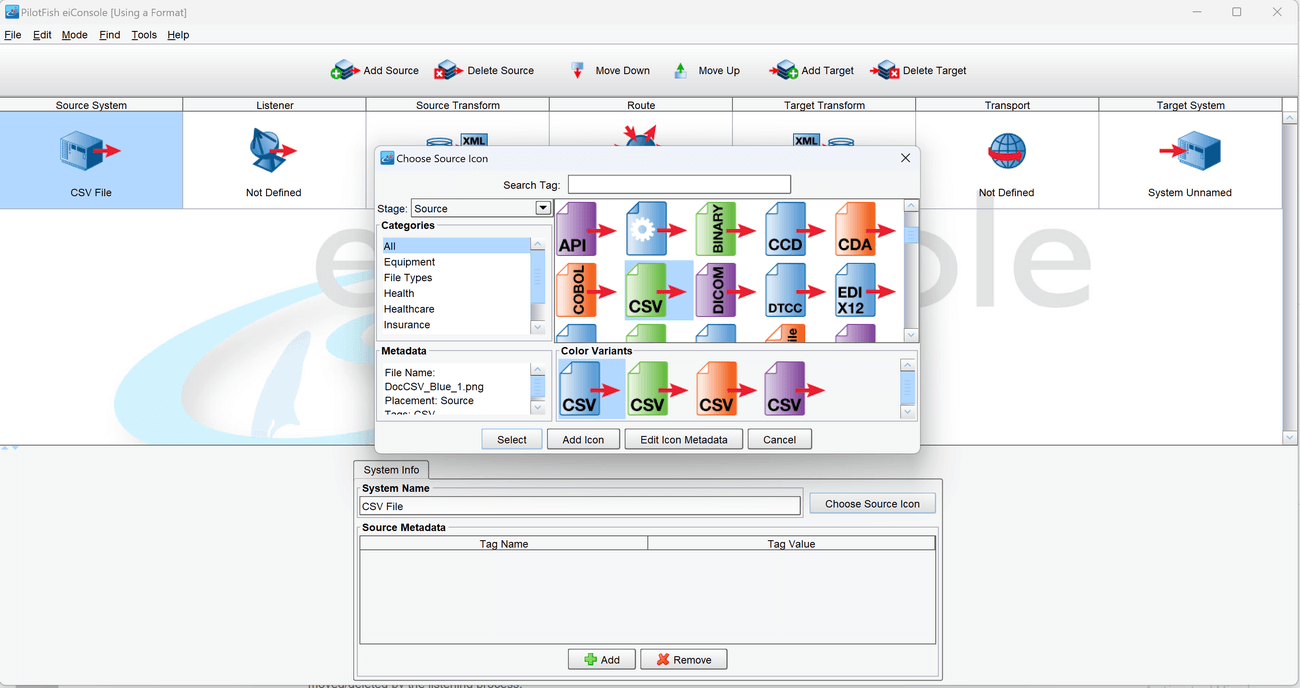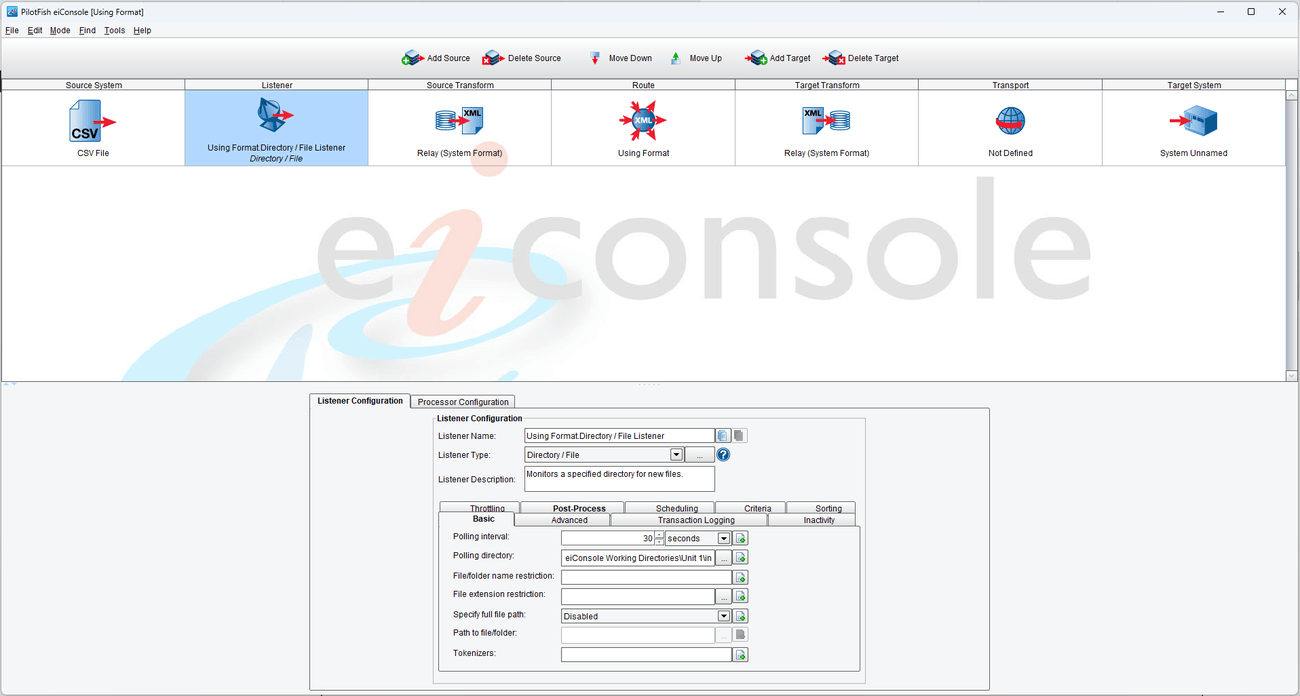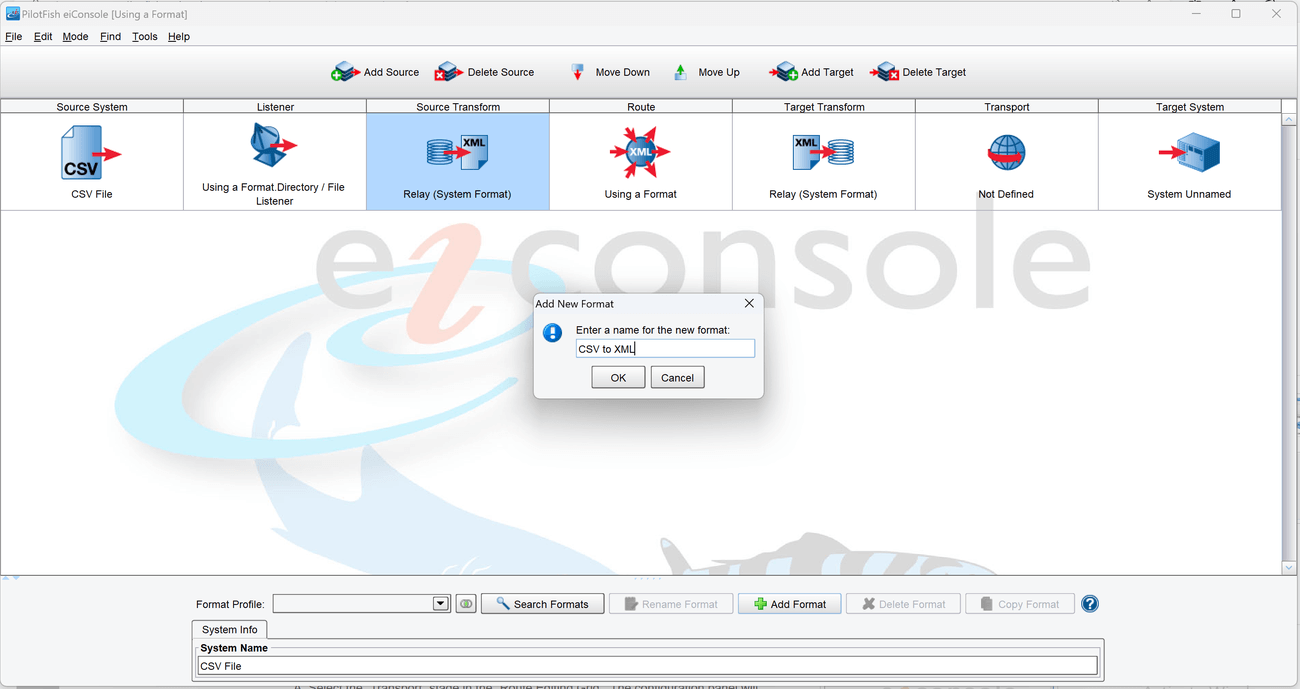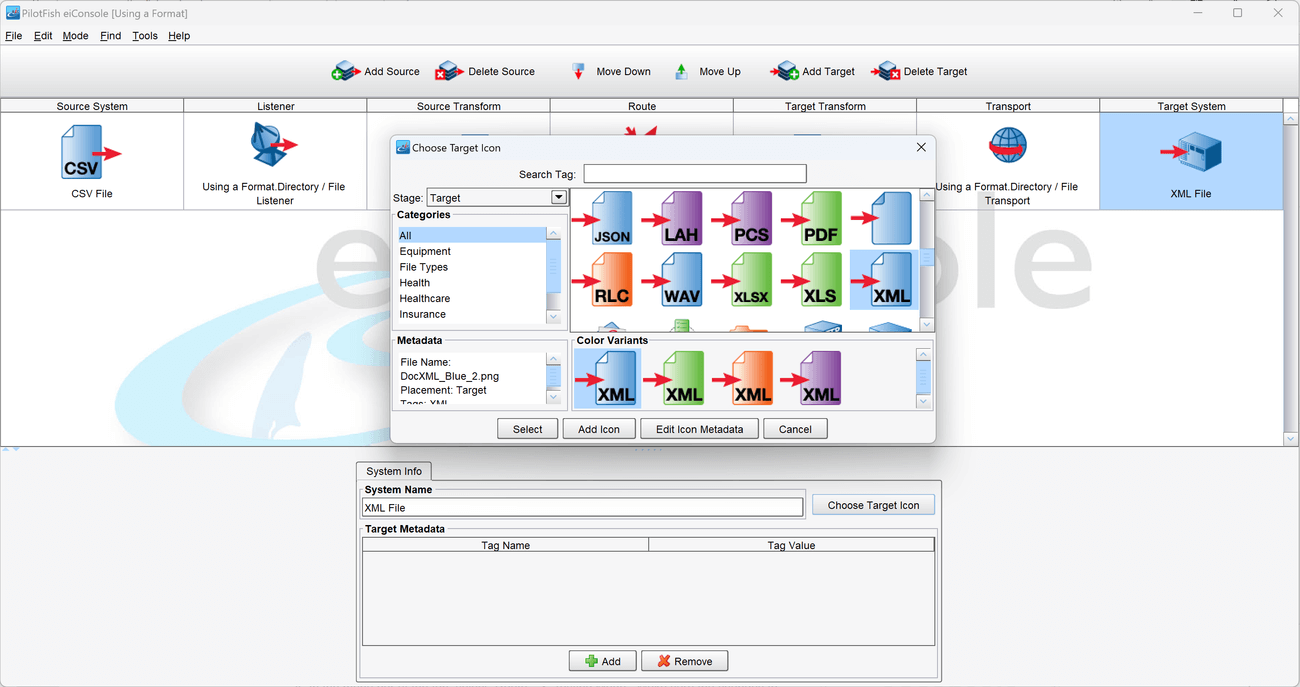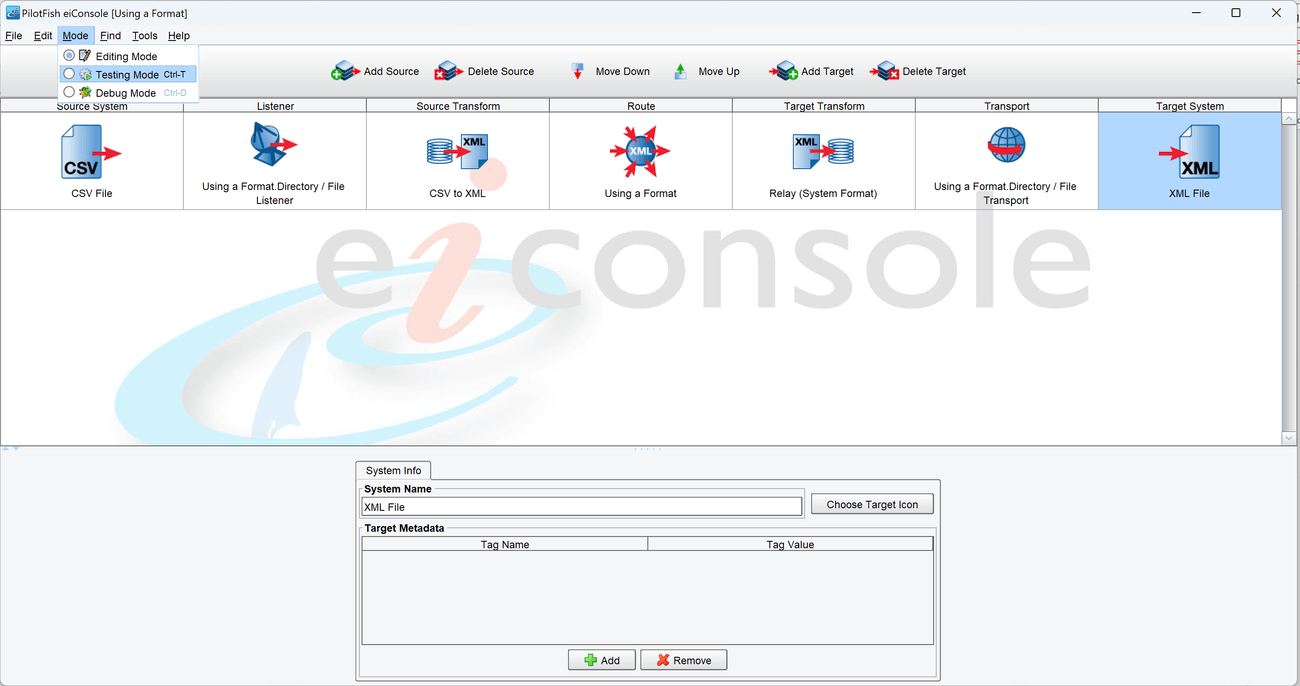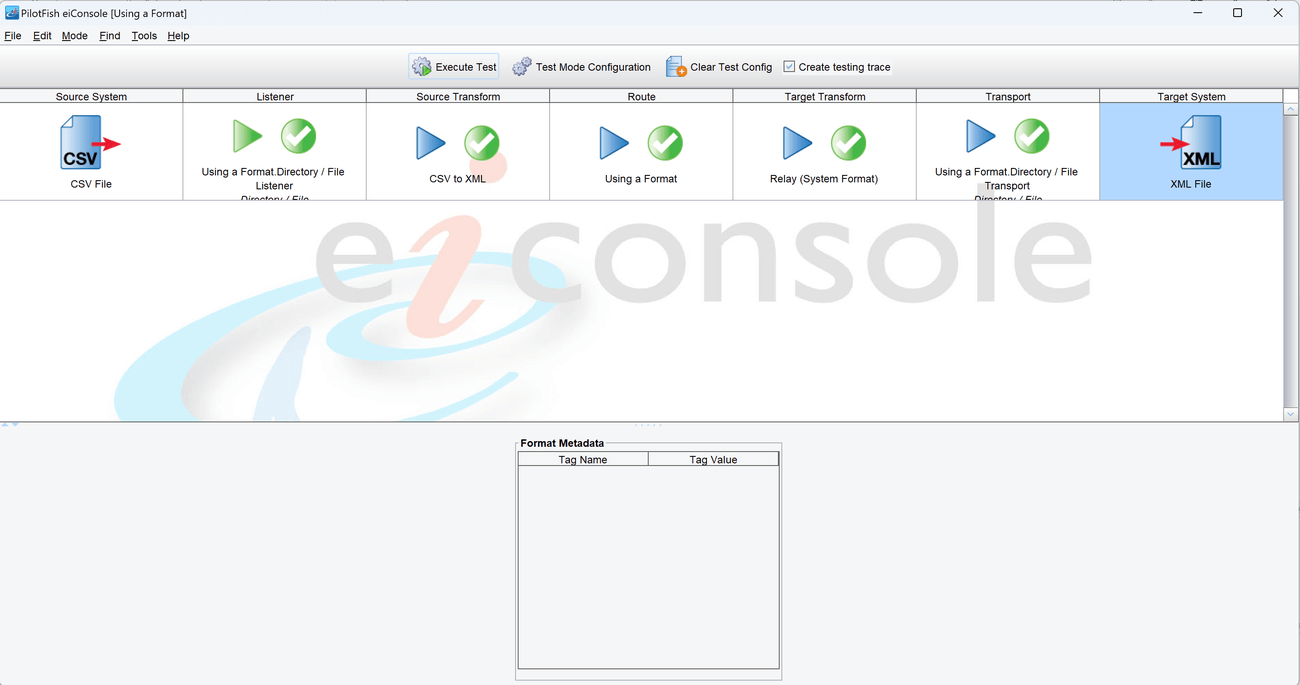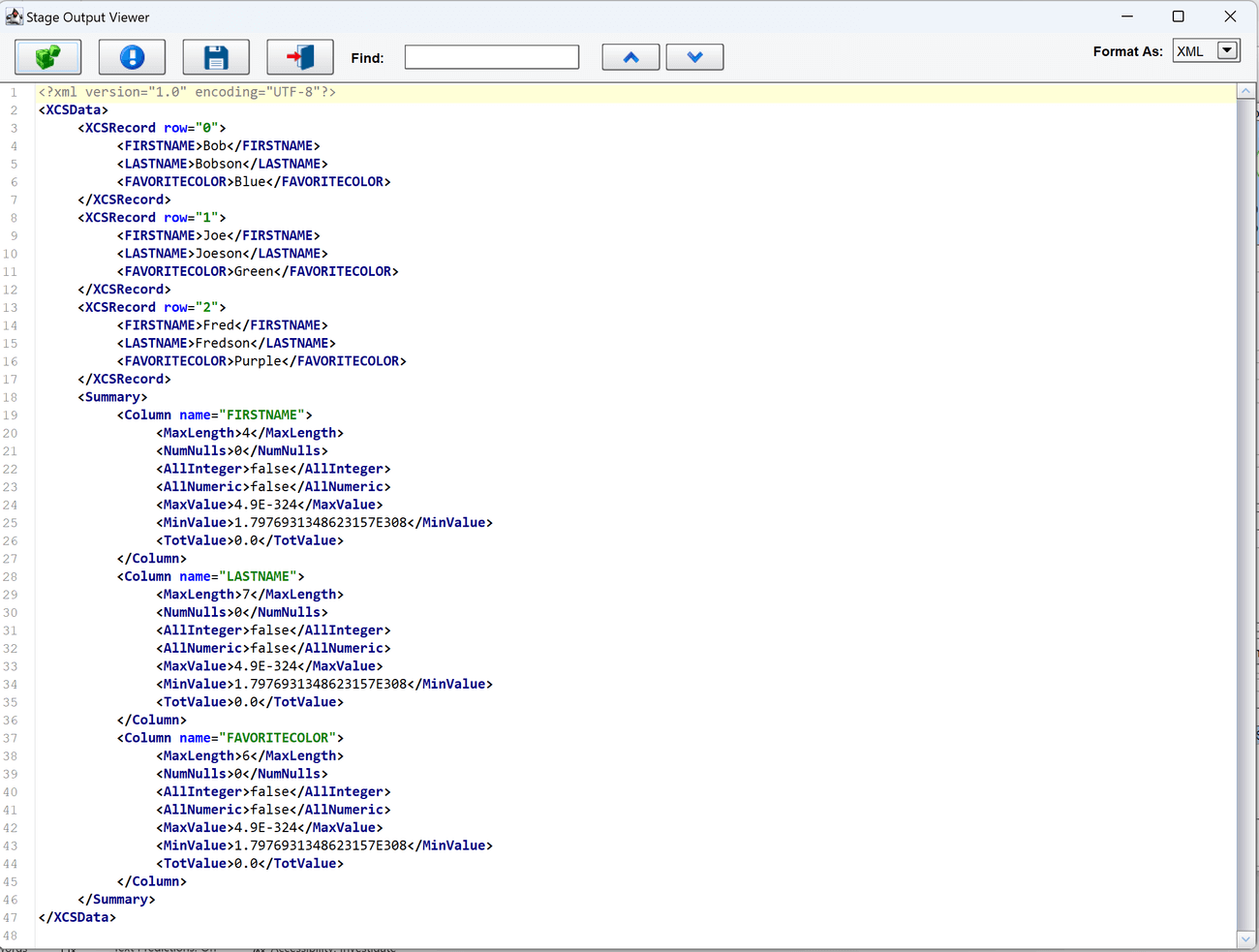Exercise 1.3 – Using a Format
Create a Route
- From the eiConsole File Management screen, select the Add Route button.
- In the dialog that appears, enter the name Using a Format and select OK.
- The Route should now appear in the table on the screen. Double-click it to open it.
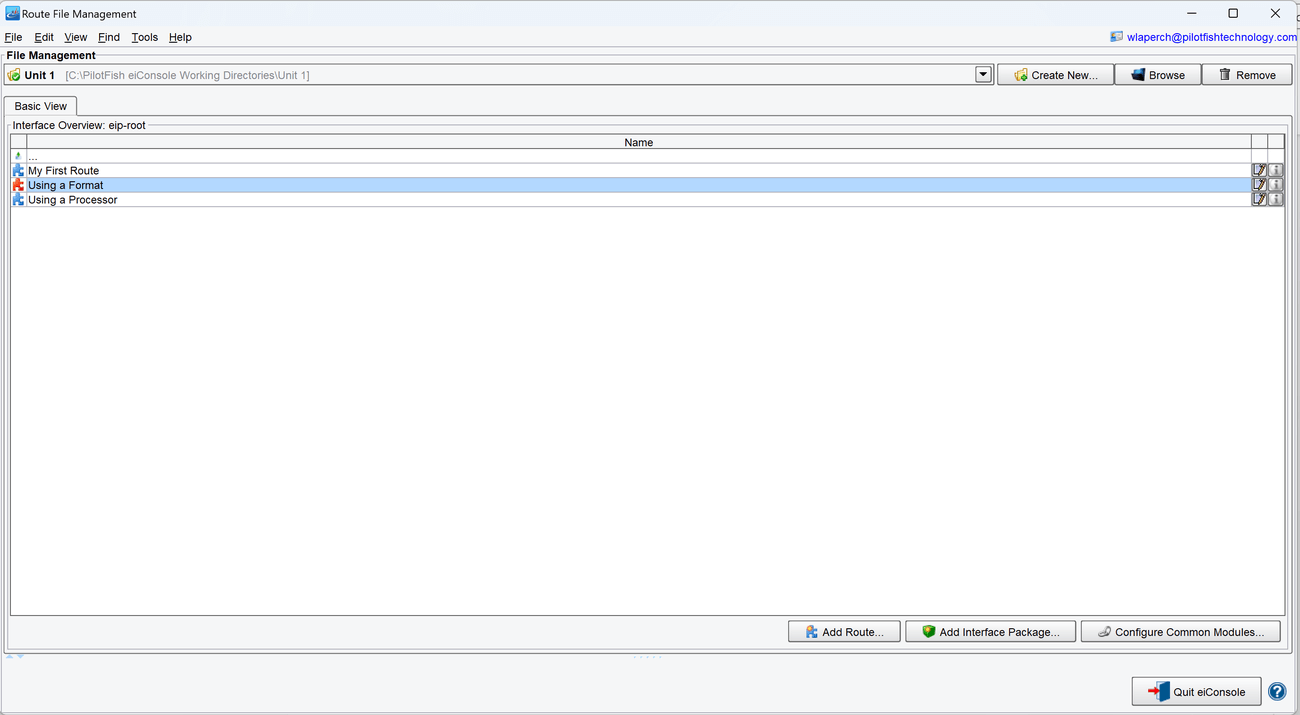
Document the Source System
- Select the Source System stage in the Route Editing Grid. The configuration panel will appear at the bottom.
- Change the System Name to CSV File.
- Select the Choose Source Icon button, and scroll down to select one of the CSV icons.

Configure the Listener
- Select the Listener stage in the Route Editing Grid. The configuration panel will appear at the bottom.
- Select Directory/File from the Listener Type selection box. Optionally, click the … button to open the Module Search Dialog, which provides a faster way to find the module you’re looking for.

- Assign a polling directory, using the … button to open the file selector. The polling directory should NOT be the directory with all the sample files, since files will be moved/deleted by the listening process.

- Go to the Post-Process tab and select Delete from Postprocess Operation:
Configure the Source Transform
- Select the Source Transform stage in the Route Editing Grid. The configuration panel will appear at the bottom.
- Select the Add Format button. In the dialog that appears, enter the name of the format CSV to XML. Click OK, and the Format will be created, and the configuration panel will appear below.

- On the left side of the configuration panel, select the CSV option from the Transformation Module selection box. Optionally, click the … button to open the Module Search Dialog, which provides a faster way to find the module you’re looking for.
- The configuration panel that appears provides the options for configuring the CSV Transformer. For this exercise, the default settings will suffice.

Configure the Transport
- Select the Transport stage in the Route Editing Grid. The configuration panel will appear at the bottom.
- Select Directory/File from the Transport Type selection box. Optionally, click the … button to open the Module Search Dialog, which provides a faster way to find the module you’re looking for.

- Select the Target Directory, using the … button to open the file selector.
- Set csv-xml-output as the Target File Name.
- Set xml as the Target File Extension.

Document the Target System
- Select the Target System stage in the Route Editing Grid. The configuration panel will appear at the bottom.
- Change the System Name to XML File.
- Select the Choose Target Icon button, and scroll down to select one of the XML icons.

Prepare to Test the Route
- In the menu bar at the top, select Mode -> Testing Mode. Make sure the changes to the Route are saved.

- Copy the file called example.csv from the Samples directory provided into the directory chosen as the polling directory.
- In the menu bar at the top, select Mode -> Testing Mode. Make sure the changes to the Route are saved.
Test the Route
- At the top of the Testing Mode screen, select the Execute Test button.
- If the Route was configured successfully, all the Stages should light up with green checkmarks.

- Select the Transport stage. The configuration panel will appear at the bottom.
- Select the View Stage Output button at the bottom. The Results Viewer will appear, displaying the outcome of the test.
- In the Results Viewer you should find the CSV content, now in XML form.

Output Files
- Compare the results from the exercise with the following example output files to see if they are correct.

